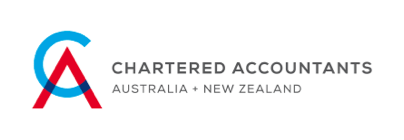Trust accounts serve as vital financial tools across various industries in Australia, ensuring client funds are managed responsibly and transparently. However, the nuances of trust account management and auditing can vary significantly depending on the sector.
Allen Audit & Advisory Manager Katrina McPhee highlights the characteristics of trust accounts in real estate, law firms, accounting, and funeral services, and offers tailored auditing insights for each industry.
Industry-specific trust accounts
Katrina says trust accounts share a common purpose—to safeguard client funds. “But their management and auditing requirements are shaped by the regulatory frameworks, client expectations, and operational challenges of each sector,” says Katrina.
“Understanding these distinctions is important when it comes to conducting effective audits tailored to each industry.”
- Real estate: These trust accounts handle deposits from property buyers or renters, often involving high transaction volumes.
- Law firms: Funds held in trust can include settlements, retainers, and court-related payments, requiring strict compliance with legal and ethical standards.
- Accountants: These accounts often manage client funds for tax payments or payroll, necessitating high levels of accuracy and accountability.
- Funeral services: Pre-paid funeral funds held in trust must meet specific obligations to ensure future services are honoured.
Auditing real estate trust accounts
Real estate trust accounts are governed by strict state regulations in Australia to protect buyers, sellers, and renters. Katrina says auditing these accounts focuses on four key areas.
“We look at transactions and reconciliations to ensure funds are treated in the manner specified by the client and in line with the relevant state regulatory bodies,” says Katrina.
“We’ll also review whether records kept meet the relevant state legislation standards and that funds are deposited on time to avoid breaches of compliance.
Katrina says auditors also assess if the trust accounts meet the specific standards applicable to the real estate industry. “Modern accounting software can help streamline the management of trust accounts and keep real estate businesses prepared for external audits,” she says.
“Agencies can address any discrepancies early by conducting regular internal audits as well as mandated external audits.”
Law firm trust accounts
Law firms operate under rigorous ethical obligations, and Katrina says trust accounts play a pivotal role in safeguarding client funds.
“So, when auditing legal trust accounts, we pay particular attention to the segregation of client funds; reviewing individual client ledgers to confirm all transactions are correctly recorded; and verify the rules set by legal regulatory bodies, including the timing of deposits and withdrawals, have been followed,” says Katrina.
“We also examine internal controls of law firms to ensure they are mitigating the risks of misappropriation or misuse of client funds.
“I always recommend regular staff training on trust account management for law firms to help them maintain compliance and reduce errors.”
Accountant trust accounts
There are lots of reasons accountants may manage trust accounts, whether it is tax payments, payroll, or client investments. Katrina points out these accounts need absolute transparency and precision.
“Again, we’re looking to make sure funds have been allocated to the correct accounts and purposes without delay,” says Katrina.
“Audits also review the approval processes for withdrawals to prevent errors or fraud.”
“We check that transactions are reported accurately to the Australian Tax Office or relevant regulatory bodies.”
Funeral trust accounts
Funeral service providers use trust accounts to manage pre-paid funds, where clients can cover funeral services planned for the future.
“Given the sensitive nature of these funds, it is important for auditors to focus on fund preservation, ensuring the money is held securely and invested according to state regulations,” says Katrina.
“There also needs to be assurance for the future service, to make sure the funds will cover what was promised.
“Part of that is transparent reporting to clients, so they get regular, clear updates on the status of their pre-paid funds.”
Funeral trust account audits also confirm adherence to relevant laws, including reporting and fund segregation requirements.
“I recommend funeral service providers maintain a very clear audit trail for each client’s pre-paid plan to keep things completely transparent and build trust and accountability with their clients and regulators,” says Katrina.
Trust accounts are critical to maintaining financial integrity and client service across various industries. By understanding the unique requirements of each sector, businesses can ensure their trust accounts remain compliant, transparent, and well-managed.
At Allen Audit & Advisory, we specialise in auditing trust accounts across all industries, bringing sector-specific expertise to ensure compliance and peace of mind. Contact our team today to learn how we can support your business.








